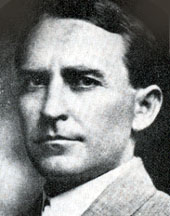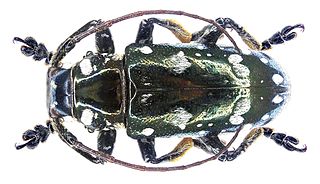| |||||||||||||||||
| |||||||||||||||||
| |||||||||||||||||
The California gubernatorial election, 1938 was held on November 8, 1938.
| |||||||||||||||||
| |||||||||||||||||
| |||||||||||||||||
The California gubernatorial election, 1938 was held on November 8, 1938.
| Party | Candidate | Votes | % | ± | |
|---|---|---|---|---|---|
| Democratic | Culbert L. Olson | 1,391,734 | 52.49 | ||
| Republican | Frank F. Merriam (incumbent) | 1,171,019 | 44.17 | ||
| Progressive | Raymond L. Haight | 64,418 | 2.43 | ||
| Commonwealth Party | Robert Noble | 23,787 | 0.90 | ||
| Total votes | 0 | 100.0% | |||
| Democratic gain from Republican | Swing | ||||

Czechoslovakia, or Czecho-Slovakia, was a sovereign state in Central Europe that existed from October 1918, when it declared its independence from the Austro-Hungarian Empire, until its peaceful dissolution into the Czech Republic and Slovakia on 1 January 1993.

The 1938 FIFA World Cup was the third staging of the World Cup, and was held in France from 4 to 19 June 1938. Italy retained the championship by beating Hungary 4–2 in the final. Italy's 1934 and 1938 teams became the only ones to have won two World Cups under the same coach, Vittorio Pozzo.

Kristallnacht or Reichskristallnacht, also referred to as the Night of Broken Glass, Reichspogromnacht[ˌʁaɪçs.poˈɡʁoːmnaχt] or simply Pogromnacht[poˈɡʁoːmnaχt](

The Great Purge or the Great Terror was a campaign of political repression in the Soviet Union which occurred from 1936 to 1938. It involved a large-scale purge of the Communist Party and government officials, repression of wealthy landlords and the Red Army leadership, widespread police surveillance, suspicion of saboteurs, counter-revolutionaries, imprisonment, and arbitrary executions. In Russian historiography, the period of the most intense purge, 1937–1938, is called Yezhovshchina, after Nikolai Yezhov, the head of the Soviet secret police, the NKVD, who was executed a year after the purge. Modern historical studies estimate the total number of deaths due to Stalinist repression in 1937–38 to be between 681,692-1,200,000.

The Munich Agreement or Munich Betrayal was an agreement concluded at Munich, September 29, 1938, by Germany, Great Britain, France and Italy. It provided "cession to Germany of the Sudeten German territory" of Czechoslovakia. Most of Europe celebrated because it prevented the war threatened by Adolf Hitler by allowing Nazi Germany's annexation of the Sudetenland, a region of western Czechoslovakia inhabited by 800,000 people, mainly German speakers. Hitler announced it was his last territorial claim in Europe, and the choice seemed to be between war and appeasement.

The 1938 British Empire Games was the third British Empire Games, the Commonwealth Games being the modern-day equivalent. Held in Sydney, New South Wales, Australia from 5–12 February 1938, they were timed to coincide with Sydney's sesqui-centenary. Venues included the Sydney Cricket Ground, the Sydney Sports Ground, North Sydney Olympic Pool and Henson Park. An estimated 40,000 people attended the opening ceremony. A competitors' residential village was established within the grounds of the Sydney Showground.

The United States Senate elections of 1938 occurred in the middle of Franklin D. Roosevelt's second term. This occurred six years after the Democratic landslide in the 1932 election, and so the opposition Republicans gained seven seats from the Democrats. However, the Democrats retained a commanding lead over the Republicans with more than two-thirds of the chamber.

The 1938 United States House of Representatives elections was an election for the United States House of Representatives in 1938 which occurred in the middle of President Franklin D. Roosevelt's second term. Roosevelt's Democratic Party lost a net of 72 seats to the Republican Party, who also picked up seats from minor Progressive and Farmer-Labor Parties.
The Homer in the Gloamin' is one of the most famous walk-off home runs in baseball folklore, hit by Gabby Hartnett of the Chicago Cubs near the end of the 1938 Major League Baseball season. The expression was a play on the popular song, "Roamin' In The Gloamin' " and was used in the lead paragraph of a story about the game written by Earl Hilligan for the Associated Press.

Anschluss refers to the annexation of Austria into Nazi Germany on 12 March 1938. The word's German spelling, until the German orthography reform of 1996, was Anschluß and it was also known as the Anschluss Österreichs.

The 1938 United States elections were held on November 8, 1938, in the middle of Democratic President Franklin D. Roosevelt's second term. The Democratic Party lost 72 seats, mostly to the Republican Party, in the House of Representatives. The Democrats also lost seven seats to the Republicans in the U.S. Senate. This election marked the first time since the Civil War that the six-year itch phenomenon did not result in the president's party losing control of either house, as the Democrats still maintained majorities in both houses of Congress.

Pteropliini is a tribe of longhorn beetles of the Lamiinae subfamily.

Pterolophia is a genus of longhorn beetles of the subfamily Lamiinae, containing the following species:
Five-suit bridge is a late 1930s variation of contract bridge played with a deck of 65 playing cards divided into five suits.
| This California elections-related article is a stub. You can help Wikipedia by expanding it. |